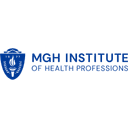This course is part of Healthcare Data Analytics Toolkit.
In this comprehensive course from MGH Institute, you'll develop a solid foundation in the most common statistical methods used in healthcare data analysis. The curriculum focuses on both univariate and multivariate statistical techniques essential for analyzing health-related data. You'll learn practical skills through hands-on activities, applying these statistical methods using specialized software packages. The course covers necessary data wrangling techniques specifically tailored for healthcare industry examples. While emphasizing practical application of statistical methods, you'll gain understanding of mathematical concepts and assumptions necessary for proper analysis. The five structured modules build progressively, starting with descriptive statistics and data distributions, moving through sampling distribution and hypothesis testing, visualizing and summarizing data in R, independent and paired sample t-tests, and culminating with ANOVA. Each module combines written content, instructional videos, guided step-by-step activities, and assessments to reinforce learning. By course completion, you'll be able to apply statistical concepts to healthcare data, perform basic data manipulation in R, conduct t-tests and ANOVA analyses, implement hypothesis testing, and effectively communicate analysis results in simple language. This course provides essential statistical literacy for healthcare professionals looking to make data-driven decisions.
English
English
What you'll learn
Use basic statistical concepts such as distributions, range, mean, median, variance, standard deviation, and visualizations like histograms and boxplots Apply basic data wrangling in R statistical program, including loading data, transforming data, getting summary statistics, and aggregating data Apply t-test and ANOVA analysis to healthcare data and interpret the results Apply hypothesis testing and interpret the results Communicate analysis results to others in simple language
Skills you'll gain
This course includes:
PreRecorded video
Module Quizzes, Summative Assessment
Access on Mobile, Tablet, Desktop
Limited Access access
Shareable certificate
Closed caption
Get a Completion Certificate
Share your certificate with prospective employers and your professional network on LinkedIn.
Created by
Provided by

Top companies offer this course to their employees
Top companies provide this course to enhance their employees' skills, ensuring they excel in handling complex projects and drive organizational success.





There are 5 modules in this course
This course provides a comprehensive introduction to healthcare data analysis, focusing on commonly used statistical methods in the healthcare industry. Students will develop practical skills through a combination of theoretical learning and hands-on application using R statistical software. The curriculum covers essential topics ranging from basic descriptive statistics to more advanced analytical techniques like ANOVA. The course is structured in a progressive format, with each module building upon knowledge gained in previous sections. Students will learn not only how to perform statistical analyses but also how to interpret and communicate results effectively. The practical focus ensures that learners can apply these analytical skills to real-world healthcare scenarios, making data-driven decisions. The course is designed to be accessible to beginners while providing the robust foundation needed for future advancement in healthcare analytics.
Descriptive Statistics and Data Distributions
Module 1
Sampling Distribution and Hypothesis Tests
Module 2
Visualize and Summarize Data in R
Module 3
Independent and Paired Sample t-tests
Module 4
ANOVA
Module 5
Fee Structure
Individual course purchase is not available - to enroll in this course with a certificate, you need to purchase the complete Professional Certificate Course. For enrollment and detailed fee structure, visit the following: Healthcare Data Analytics Toolkit
Payment options
Financial Aid
Testimonials
Testimonials and success stories are a testament to the quality of this program and its impact on your career and learning journey. Be the first to help others make an informed decision by sharing your review of the course.
Frequently asked questions
Below are some of the most commonly asked questions about this course. We aim to provide clear and concise answers to help you better understand the course content, structure, and any other relevant information. If you have any additional questions or if your question is not listed here, please don't hesitate to reach out to our support team for further assistance.

